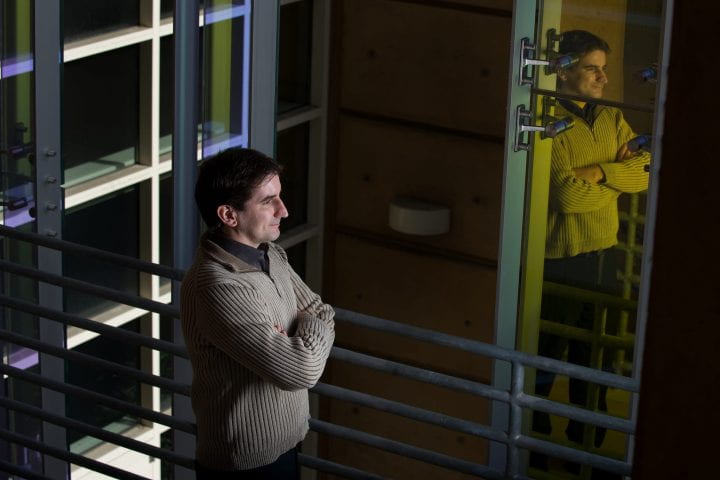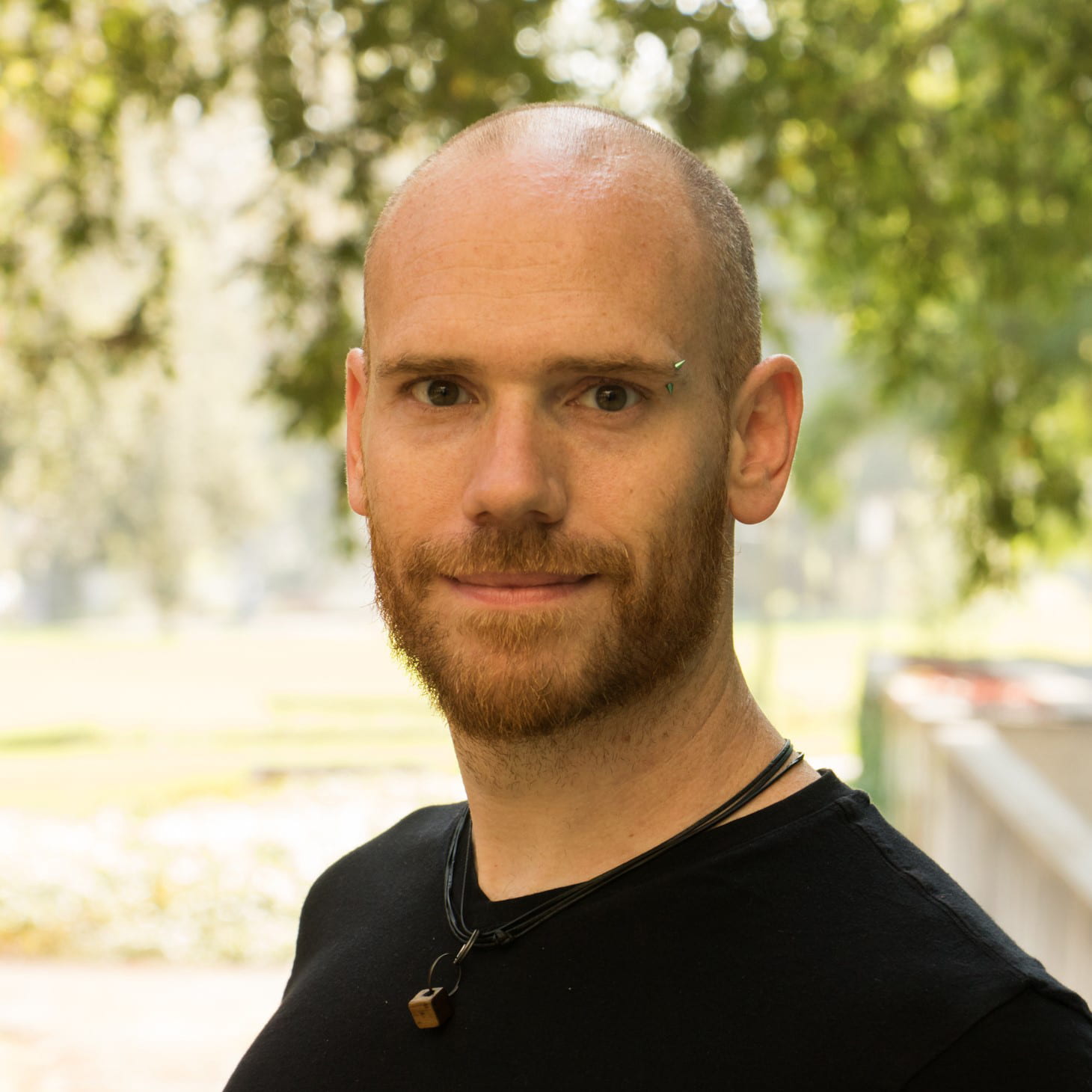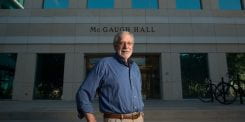A psychological split
Therapists, scientists differ notably in acceptance of repressed memories

Repressed and recovered memories have provided fodder for talk shows and television movies of the week and are entered into evidence in legal cases, but therapists and researchers disagree on their validity.
UC Irvine scientists recently published a study showing how dire this split really is: Sixty to 90 percent of counselors agree that traumatic memories are often repressed, compared with less than 30 percent of research psychologists. Many therapists (43 percent to 75 percent, depending on the type of therapy) also believe that repressed memories can be retrieved in treatment, whereas only 10 percent to 24 percent of researchers do.
“Whether repressed memories are accurate or not – and whether they should be pursued by counselors or not – is probably the single most practically important topic in clinical psychology since the days of Freud,” says Lawrence Patihis, a graduate student in psychology & social behavior at UC Irvine.
Patihis’ findings were reported online Dec. 13 in Psychological Science, a journal of the Association for Psychological Science. The study was co-authored by Elizabeth Loftus, UC Irvine Distinguished Professor of psychology & social behavior and criminology, law & society; UC Irvine alums Lavina Ho and Ian Tingen; and Scott Lilienfeld of Emory University.
The divide has serious consequences, for both the profession of law and the intimate lives of everyday people, Patihis says: Recovered repressed memories “can lead to the most awful legal cases, to families being split up, to multiple personalities and even to suicide in those who think they’ve recovered extraordinarily severe trauma memories.”
Here, he discusses repressed-memory research and the implications of the scientist/practitioner split.
Q: Why are therapists more willing than scientists to accept repressed memories as legitimate?
A: I’m not quite sure. One of our co-authors, Scott Lilienfeld, has pointed to research showing that clinicians are more apt to trust clinical experience, while researchers tend to trust experimental research. Maybe that’s the key to the divide – because there are many anecdotal reports of cures coming from retrieving repressed memories, but at the same time, credible experimental evidence of it does not exist in the eyes of most researchers. Another possible reason could be that therapists are empathetic and quite moved by reports of repressed memories in their clients. We don’t have this data for psychologists, but in undergraduates we found that those who were most empathetic were inclined to believe slightly more in repressed memories. This is a nice finding because it shows skeptical researchers like me that such beliefs could be emerging from positive attributes (rather than a lack of intelligence).
Q: The public generally seems to accept the concept of repressed memories. Do you think pop culture plays a significant role in this?
A: Yes, the public tends to read books by psychologists who publish direct to the bookstores without peer review, and they tend to listen to people they respect, such as Oprah, for guidance on psychological issues. In addition, the idea of recovering horrendous repressed memories makes for really engrossing stories. How memory works is horribly misrepresented on TV and in movies – it’s an utter disaster.
Q: What are some ways to bridge the gap between researchers and practitioners when it comes to repressed memories?
A: My suggestion is to include just one semester-long memory research class in every graduate program in clinical psychology, social work, and marriage and family therapy – a non-rhetorical class on such topics as the evidence for consolidation, incomplete encoding, the evidence for reconstruction, memory distortions and traumatic memory research. Even if there’s a bit of disagreement among some of the studies, presenting all the evidence would probably have a profoundly important impact on the field and, consequently, improve many people’s lives.
Q: Is it possible for the brain to repress memories? How are these memories different from other traumatic memories?
A: Given what research has revealed about how memory works, I think that traumatic memories can be forgotten and then remembered with a cue later. They can also fade over time and then be reconstructed from fragments later – sometimes accurately, sometimes not. This is crucially different, though, from a memory being inaccessible for years while it’s repressed and then emerging as something wholly unknown to a client before therapy. These seemingly minute differences in definition can have enormous consequences out there in the world of therapy. Meredith Maran details in her book My Lie how a belief in repressed memories led to false memories and false accusations that split her family apart. In other cases, repressed memories have been implicated in the creation of multiple personalities, leading to deep (and allegedly iatrogenic) distress in patients and protracted malpractice lawsuits (e.g., Sheri J. Storm v. Legion Insurance Co.).
Q: What changes, if any, do you hope this study brings about?
A: I hope this study leads to actions further down the road that resolve the scientist/practitioner split. Although it would likely be good for publicity, I don’t want this study to necessarily generate hostile controversy. I think we should be open to ideas on how to close the gap in beliefs about repressed memories from both clinicians and researchers. It’s a very serious divide in our field. In this survey, established clinical psychology researchers tended to agree with memory researchers. It’s only when you look at those who actually practice that you see the belief in repressed memories drastically jump up.


